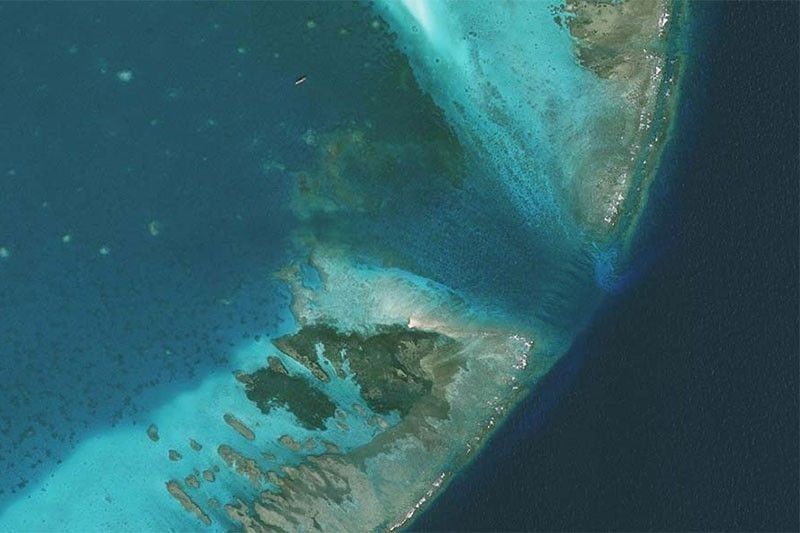Addressing China’s gray zone operations through Philippines' civil-maritime agencies

On April 17, 2012, the commanding general of the Armed Forces of the Philippines (AFP) Northern Luzon Command, Lieutenant General Anthony Alcantara, announced that the Philippine Coast Guard (PCG) is replacing its lone patrol craft the BRP EDSA II with the BRP Pampanga during an intense stand-off with two China Maritime Surveillance (CSMU) ships off Scarborough Shoal.
This dangerous maritime incident between China and the Philippines began on April 10 when the Philippine Navy (PN) dispatched its flagship, the BRP Gregorio Del Pilar, to Scarborough Shoal to apprehend eight Chinese fishing boats allegedly illegally fishing in this land feature, which is claimed by both the Philippines and China. Filipino sailors and their officers were about to board and inspect the fishing trawlers in the shoal, as the PN observed that the Chinese were poaching and harvesting endangered clams, sharks, and corrals in the shoals’ lagoon.
However, the Chinese fishermen sent out a distress call to authorities in China’s Hainan Island. Two CMSU vessels were on a routine patrol nearby and were ordered to take position at the narrow mouth of Scarborough Shoal’s lagoon. The vessels arrived on the scene and prevented the PN’s boarding party from inspecting the Chinese fishing vessels and apprehending their crews. The eight Chinese fishing boats eventually slipped away from the lagoon leaving the BRP Gregoria Del Pilar in an uneasy standoff with two CMSU patrol vessels.
The Philippines attempted to demilitarize and defuse the tensed situation when it pulled out the PN frigate from the shoal for restocking of supplies and refueling. China, however, did not reciprocate the gesture and instead, raised the ante by dispatching its most advanced and latest fishery patrol ship, the Yuzheng-310, to join the two other civilian patrol vessels facing the lone PCG search and patrol craft in shoal. On April 15, the Chinese foreign ministry demanded the Philippines to withdraw its solitary coast guard ship from Scarborough Shoal.
Why the Coast Guard?
At the onset of the stand-off, China took the upper hand when it used a civilian vessel to force a naval surface combatant to back away and withdrew from the shoal. This was the first time that a Chinese civilian vessel prevented the PN from arresting Chinese fishermen. On the one hand, with its huge fleet of armed civilian maritime vessels in its inventory, China puts the onus on either escalating or deescalating the stand-off on the weaker party, the Philippines.
On the other hand, the Philippines realized too late that the navy is not the most appropriate instrument to assume a policing role as naval combatants are simply too capable, expensive, and provocative for what is essentially a maritime constabulary operation. The coast guard, not the navy, is the appropriate instrument for constabulary operations at sea. This is because constabulary operations, based on a reasonable use of force principal, still require a skill set associated with the use of small, fast craft and operation involving the enforcement of civil-maritime security framework.
The Philippine Coast Guard (PCG) was created on the basis of Republic Act 9993, or otherwise known as “The Philippine Coast Guard Law of 2010.” This legislation transformed the Philippine Navy’s (PN’s) former unit tasked with law enforcement and internal security into a demilitarized service under a civilian agency, the Department of Transportation and Communication (DOTC).
The goal of this legislation was to separate the PCG from the PN and enable it to develop as the country’s maritime safety agency. The PCG can transition quickly from defense-support related activities to civilian/law enforcement activities while keeping the universal treatment of such agencies as humanitarian service. The separation from the PN means that it is under the direct command and supervision of the DOTC secretary and the President of the Philippines, which transformed it into a maritime constabulary force under civilian authority.
In the wake of the three-month Philippine-Chinese civilian ships stand-off near the Scarborough Shoal, the PCG became the primary enforcer of Philippine maritime rights and interests in the Philippines’ 200-nautical mile Exclusive Economic Zone, a role that the PN had traditionally assumed.
Addressing China’s gray zone operations
After a tense three-month stand-off, China’s eventual occupation of Scarborough Shoal forced Philippine national security policymakers to reassess their use of PN surface combatants in conducting maritime law enforcement operations, such as boarding foreign civilian fishing vessels and the appropriateness of confronting civilian vessels with naval surface combatants.
The Scarborough Shoal stand-off was a baptism of fire for the newly created civilian PCG. China’s adept handling of the Scarborough Shoal stand-off using civilian vessels for maritime brinkmanship made the PCG the Philippines’ primary instrument in enforcing the country’s maritime interests in the South China Sea.
Looking back to the stand-off in 2017, a PCG officer noted: “The fallout from the deployment of gray hull in Scarborough Shoal is a clear indicator of the limitations of military assets in territorial conflict. Using naval assets in these disputes will either project the Philippines as a warmongering nation or escalate tensions that can go beyond Manila’s control. The coast guard, on the other hand, is uniquely suited for handling delicate maritime tasks.”
Dr. Renato Cruz de Castro is a trustee and convenor of the National Security and East Asian Affairs Program of think tank Stratbase ADR Institute.
- Latest

























